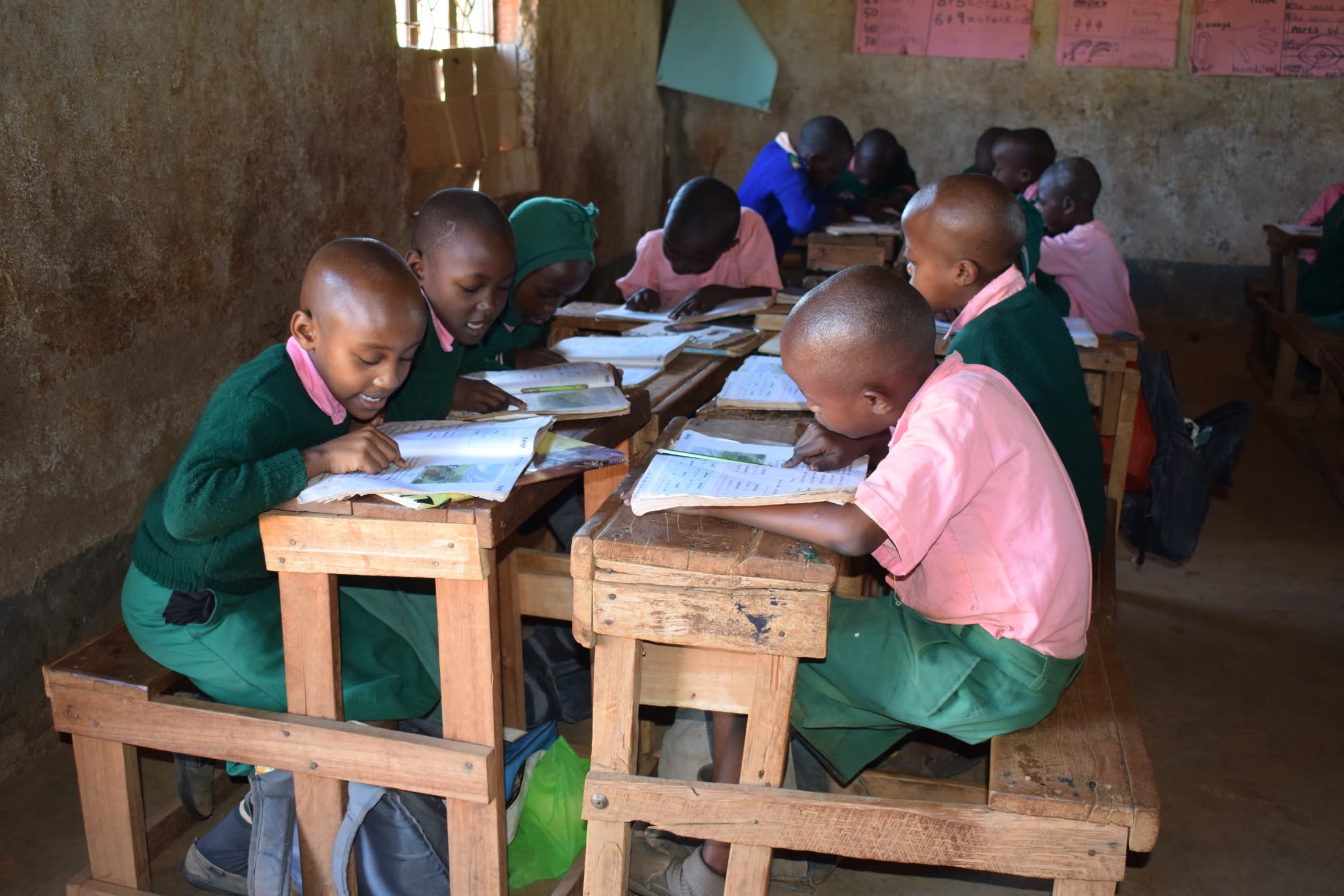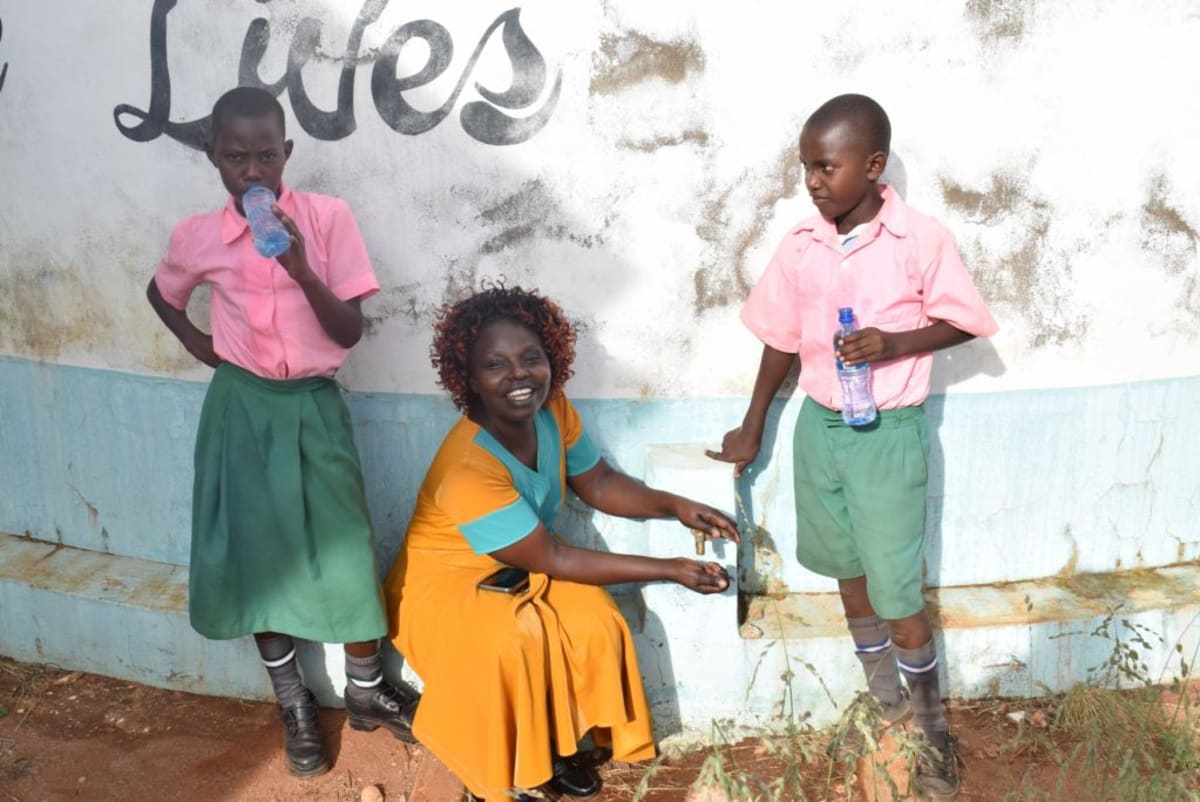The current rainwater tanks at Kituluni Primary School are so small that they only provide water to the 359 students for two months out of the year. When they run dry, the students must bring water from home each day to school. That water is often unsafe for drinking and the weight of carrying water tires out many of the young students before the school day starts.
"Our students are required to carry drinking water to school on a daily basis. Carrying water is burdening and tiresome, which has led to poor levels of concentration in class. It has also created a string of water thefts among students after breaks and lunch when thirst persists after playing," Headteacher Somitila Mutunga said.
The school was started by community members in Kituluni Village in 1967 with the aim of bringing education closer to their children. Initial support was provided by both parents and the Mbuvo Catholic Church to construct the first classrooms. The school has since grown through the support of parents and the government.
Kituluni Primary school is found in Kituluni Village, Mbuvo location in Kathonzweni sub-County of Makueni County. The immediate surroundings are quiet and dry, with Mbuvo Secondary School just down the road. The area has minimal tree coverage owing to the dry conditions experienced in the larger region.
Not having enough water has forced the school to sacrifice cleanliness. Levels of hygiene and sanitation are low, with latrines and classes not cleaned regularly. A dirty environment is not conducive for the students' learning. The school also lacks enough water to sustain a lunch program, so students sometimes miss meals because of water unavailability. Hunger and thirst has led to poor concentration in class and may be why the school has such low academic performance. The lack of water has also delayed the construction of a boarding wing to allow students who live a long way from school to stay overnight.
Here’s what we’re going to do about it:
Training
Students and staff will be trained for one day. Those in attendance will form a school health club that will promote good hygiene and sanitation practices both at school and home. They will learn all of the steps to proper handwashing, how to treat water, and how to keep their environment clean. The school will also be taught how to best oversee and maintain their new rainwater catchment tank and handwashing stations.
The latrines had below average levels of cleanliness and there were no signs of a regular thorough cleaning with water. In addition, no water was placed outside the facilities for handwashing after visiting the bathroom. Both problems are due to the lack of water at the school.
Handwashing Stations
Three handwashing stations will be delivered at the project’s completion. These are 1,000-liter plastic tanks fitted with four taps. The health club and school management will be responsible for making sure tanks are filled with water and that a cleaning agent such as soap or ash is available.
Rainwater Catchment Tank
We will build a 104,000-liter rainwater catchment tank for this school. This water will benefit the students, teachers, and supplementary staff. Parents will mobilize the materials needed for construction, such as sand and stone. They will also lend some strong arms to help with the actual construction.
The huge capacity of this tank makes the others look tiny in comparison; 104,000 liters should be enough water storage to greatly alleviate the dire situation throughout the dry season. As soon as the tank has time to cure, it can begin to collect rainwater for drinking, cooking, and cleaning!

 Rainwater Catchment
Rainwater Catchment
 Rehabilitation Project
Rehabilitation Project

































